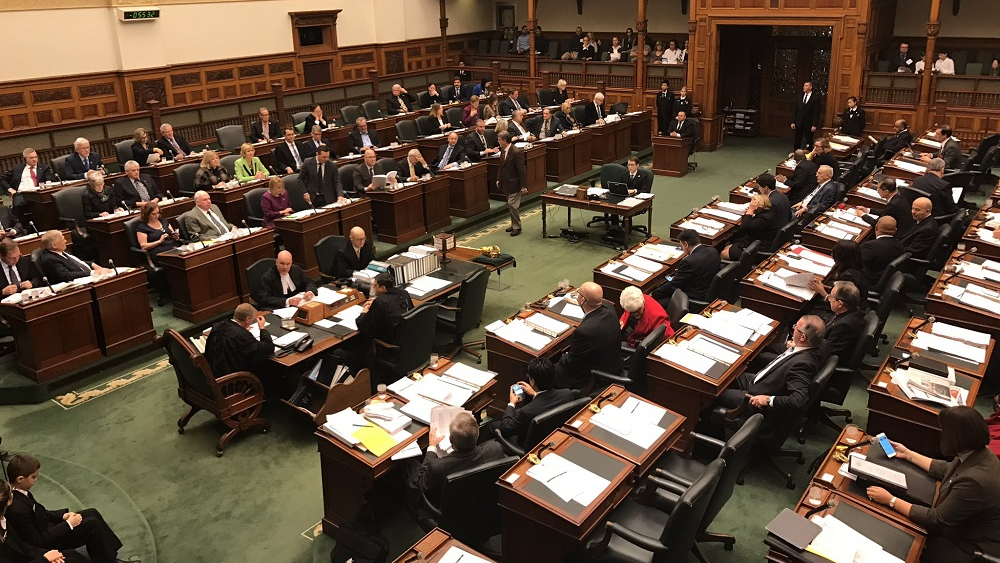Canadian politicians all seem to agree on one thing: more money for themselves is the way to go. Earlier this month, Ontario’s Attorney-General Doug Downey introduced a bill to extend political subsidies for another two years, putting millions of taxpayer dollars toward directly financing the province’s political parties.
Unlike most legislative business, the bill passed with support from all parties. Each quarter, Ford’s Progressive Conservatives (PC) will continue to receive approximately $1.2 million in subsidies, $714,000 for the Liberals, $710,000 for the New Democrats, $178,000 for the Greens, $81,000 for the New Blue Party, and $53,000 for the Ontario Party.
The Election Finances Act was first introduced in 2017 by Ontario’s then-premier Kathleen Wynne. The Liberals proposed the bill after facing a “cash-for-access” scandal over political donations from business executives.
The idea was that the Act would take big money out of politics by publicly funding political parties based on votes. But the parties didn’t really stop taking the money. According to Elections Ontario, the parties have drawn in millions from fundraising this year alone, with each party even reporting a surplus. As of 2023 Ford’s PCs are up $8 million, the Liberals $2.5 million, the NDP $2.1 million, and the Greens, $525,000.
Although the Act was originally intended to act as an anti-corruption measure against big money in politics, Ford’s $8 billion Greenbelt grab has since proven that wrong.
In 2018, Ford had actually campaigned against the subsidies, calling them “political welfare” and saying that taxpayer dollars should not be used to fund political parties. Yet with this latest extension, Ford’s PCs will benefit the most, securing approximately $4.8 million annually.

Along with extending the political party subsidies twice, the premier’s office has also benefited from the increased public spending. Ford’s office has ballooned to one of the largest and most expensive in the province’s history, with dozens of staff making the Sunshine List—a database of Ontario’s public sector employees earning $100,000 or more annually.
The motion was passed quickly through by PC House Leader Steve Clark, who made news last September after resigning due to his role in the Greenbelt scandal. A scathing report by Ontario’s then Auditor General, Bonnie Lysyk, found that several of Ford’s staff had met with housing developers and were given “packages” with information on the Greenbelt land they wanted.
Lysyk’s report found that 92% of the land removed from the Greenbelt was selected directly by developers Ford’s staff had met with. Ford’s friends who bought land since the premier took office in 2018 now stand to make over $8 billion from land sales, according to the Lysyk’s 2023 report.

